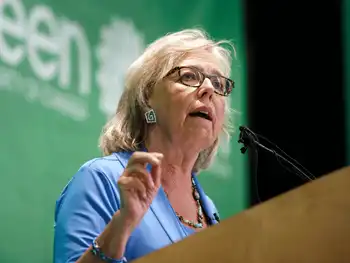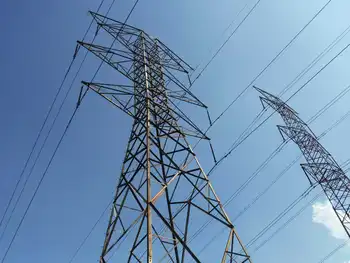Clean energy initiative for poor proposed
With cash to spare as the world's number six oil exporter, Norway wants governments and private investors to join a plan it calls Energy+ to promote green energies such as solar or wind power to combat climate change.
"Energy+ is an initiative to promote access to energy and low-carbon development" in developing nations, according to an internal document from the Ministry of International Development obtained by Reuters.
Developed countries promised in 2009 to raise climate aid to $100 billion a year from 2020, to help developing nations curb emissions of greenhouse gases and adapt to impacts such as floods, droughts, heatwaves and rising seas.
Few rich countries have outlined plans for how they will increase aid until 2020 as budget cuts bite in many nations and shorter-term domestic worries about jobs and mounting state debt eclipse concerns about global warming.
"We are trying to see if we can learn from rainforest conservation to set up a similar international scheme for environmentally friendly energy," Environment and International Development Minister Erik Solheim told Reuters.
In 2007, Norway promised 3 billion crowns US $537.3 million a year to help developing nations slow deforestation, including projects worth $1 billion each for Brazil and Indonesia — making the country a leader in such funding.
Trees soak up carbon dioxide, the main greenhouse gas, as they grow and release it when they burn or rot. Indonesia recently imposed a two-year moratorium on forest clearance as part of the scheme — some environmentalists said the Indonesian plan was not ambitious enough.
"The one big difference from rainforests is that the private sector will have to be involved in a much larger way," Solheim said.
He said that the Energy+ project would seek billions of dollars from all donors. Asked if Norway's investments would match or exceed spending on forests protection, he said: "I hope so in the long run."
He said it would have to include "a huge private component involving Norwegian hydro-electric companies and stock exchange investors like banks and funds investing in hydro, solar, wind, etc in developing nations."
"This is a very good idea — the approach to renewable energy is too fractured," said Arild Skedsmo, head of climate and energy at the WWF conservation group in Norway.
The ministry document says that global development aid to energy projects now totals about $7 billion a year. Norway doubled support for clean energy to 1.6 billion crowns US $286.6 million in 2011 from 800 million in 2010.
The ministry in April alluded to the clean energy plan in a single, little-noticed sentence in a 76-page document about sustainable growth. Solheim said it was too early to say when the Energy+ project would be formally launched.
Norway welcomed Indonesia's decision to suspend new permits for logging on 64 million hectares 158.1 million acres of land as an "important step forward."
Related News

Elizabeth May wants a fully renewable electricity grid by 2030. Is that possible?
TORONTO - Green Party Leader Elizabeth May has a vision for Canada in 2030. In 11 years, all new cars will be electric. A national ban will prohibit anyone from buying a gas-powered vehicle. No matter where you live, charging stations will make driving long distances easy and affordable. Alberta’s oil industry will be on the way out, replaced by jobs in sectors such as urban farming, renewable energy and retrofitting buildings for energy efficiency. The electric grid will be powered by 100 per cent renewable energy.
It’s all part of the Greens’ “Mission Possible” – a detailed plan released Monday…





